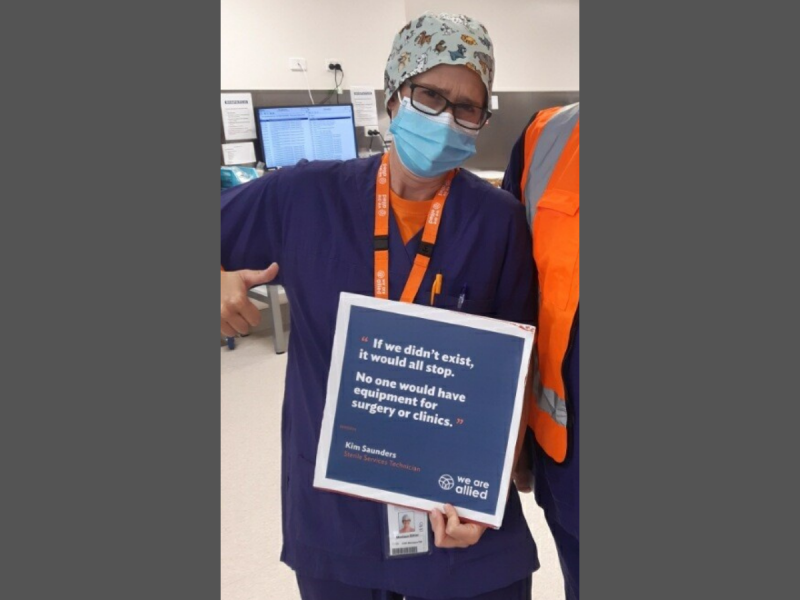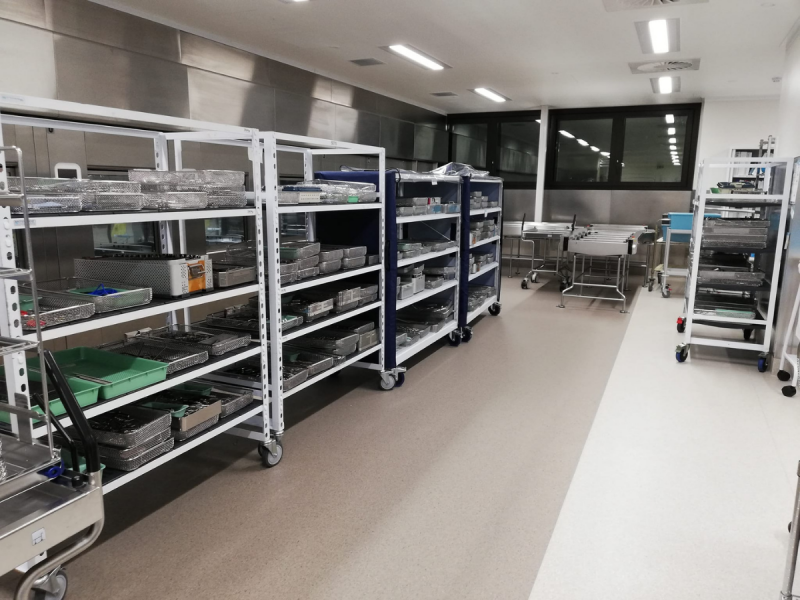On the other side of the country, sterilizing technician Steve Grant is facing the same problems.
“We feel guilty for the patient and that sort of thing, you know? The DHBs rely on that… they know we’ll just get it done [and stay] two to three hours overtime till 1 o'clock in the morning.”
Grant says his DHB budgets for 23 staff, but there are currently only 13.
Delays are also likely, as surgical equipment is often shipped from hospital to hospital. If sterilizing technicians like Grant can't properly complete a set, it won't be delivered to the next hospital in time.
He says it has taken a hugely negative toll on his personal life.
“The work-life balance is terrible because we haven’t got enough staff. We have to work more shifts… so you hardly ever see your family.”
The Public Services Association has been negotiating a new collective agreement for allied health workers with DHBs for the past 18 months. So far, industrial action has been the only result.
According to PSA organiser Will Matthews, the disruptions to the health system should show how vital members are, and how ridiculous it is that strikes have become necessary.
He says they will only withdraw strike action if the DHB's upcoming offer matches the list of recommendations recently released by the Employment Relations Authority.
DHB spokesperson Keriana Brooking says they acknowledge the time it has taken to come to an agreement, and are reviewing the recommendations under urgency.
“DHBs still hope to prevent further action, and that the offer being finalised now will result in the lifting of the strike action.”
Here in Christchurch, CDHB say they are prepared for strike action and are prioritising patient safety.
Scientific and Technical director for Allied Health, Jacqui Lunday Johnstone, says CDHB are committed to a safe and healthy working environment.
She says anyone struggling needs to speak with their manager, or take advantage of the various wellbeing support options.



